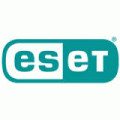New study shows parents are concerned about their children seeing illicit content online and that they want to limit social media usage
A new survey from ESET has revealed that parents are feeling increasingly concerned about the inappropriate content their children are seeing on the internet, with 40 percent admitting they worried about kids visiting terrorist sites and 60 percent worried about pornography sites and 47 percent worried about their children visiting gambling sites.
The survey studied the attitudes of 441 UK parents and also revealed 79 percent of parents would choose to block their child from using social media websites while doing their homework, highlighting just how hooked children are to modern technology. Other findings revealed that despite concern about the sites their children are visiting, 70 percent of parents still trust their child to use the internet responsibly. However 30 percent of parents admitted that they have no idea what time their child logs off the web at night.
Commenting on the findings from the study, Mark James, security specialist at ESET, said: “I find these figures quite astounding and it shows how scary a place the internet has the potential to be. One of the best ways to minimise the risk of children visiting seeing illicit content online is to monitor internet usage and teach kids about internet safety. One of the biggest problems is that parents treat their child’s internet usage like watching television – they do not expect them to see inappropriate content, however the harsh reality is that kids are curious and want to explore the internet, even when they know it’s wrong.”
When parents were asked if their child had ever received any internet safety training; 41 percent had received training at home; 35 percent had received training at school; 18 percent revealed they did not know whether their child had received training, while 7 percent said their child had received no training whatsoever. Parents were also asked if they felt the training their child had received was adequate and 62 percent of parents said yes, 4 percent said no, and 34 percent were unsure.
“Parents should be proactively encouraging their children to do internet safety courses so they are aware of how to use the internet responsibly. The training will teach children about threats on the internet and how cybercriminals lure their victims. While it has always been strongly advised that children should be supervised when using the internet, this advice is rarely taken. Parents do not view the internet as a place that could cause any immediate danger to their child as the places they visit on the internet is done in the comfort of their own home. This is not a good attitude to take and the internet should be treated with caution as there are a number of online threats which could also have a physical impact on their child,” continued James.
About ESET
 ESET®, the pioneer of proactive protection and the maker of the award-winning ESET NOD32® technology, is a global provider of security solutions for businesses and consumers. For over 26 years, the Company continues to lead the industry in proactive threat detection. By obtaining the 80th VB100 award in June 2013, ESET NOD32 technology holds the record number of Virus Bulletin “VB100” Awards, and has never missed a single “In-the-Wild” worm or virus since the inception of testing in 1998. In addition, ESET NOD32 technology holds the longest consecutive string of the VB100 awards of any AV vendor. ESET has also received a number of accolades from AV-Comparatives, AV-TEST and other testing organizations and reviews. ESET NOD32® Antivirus, ESET Smart Security®, ESET Cyber Security® (solution for Mac), ESET® Mobile Security and IT Security for Business are trusted by millions of global users and are among the most recommended security solutions in the world.
ESET®, the pioneer of proactive protection and the maker of the award-winning ESET NOD32® technology, is a global provider of security solutions for businesses and consumers. For over 26 years, the Company continues to lead the industry in proactive threat detection. By obtaining the 80th VB100 award in June 2013, ESET NOD32 technology holds the record number of Virus Bulletin “VB100” Awards, and has never missed a single “In-the-Wild” worm or virus since the inception of testing in 1998. In addition, ESET NOD32 technology holds the longest consecutive string of the VB100 awards of any AV vendor. ESET has also received a number of accolades from AV-Comparatives, AV-TEST and other testing organizations and reviews. ESET NOD32® Antivirus, ESET Smart Security®, ESET Cyber Security® (solution for Mac), ESET® Mobile Security and IT Security for Business are trusted by millions of global users and are among the most recommended security solutions in the world.
The Company has global headquarters in Bratislava (Slovakia), with regional distribution centers in San Diego (U.S.), Buenos Aires (Argentina), and Singapore; with offices in Jena (Germany), Prague (Czech Republic) and Sao Paulo (Brazil). ESET has malware research centers in Bratislava, San Diego, Buenos Aires, Singapore, Prague, Košice (Slovakia), Krakow (Poland), Montreal (Canada), Moscow (Russia) and an extensive partner network for more than 180 countries. More information is available from the ESET Press Center.
The opinions expressed in this post belongs to the individual contributors and do not necessarily reflect the views of Information Security Buzz.



